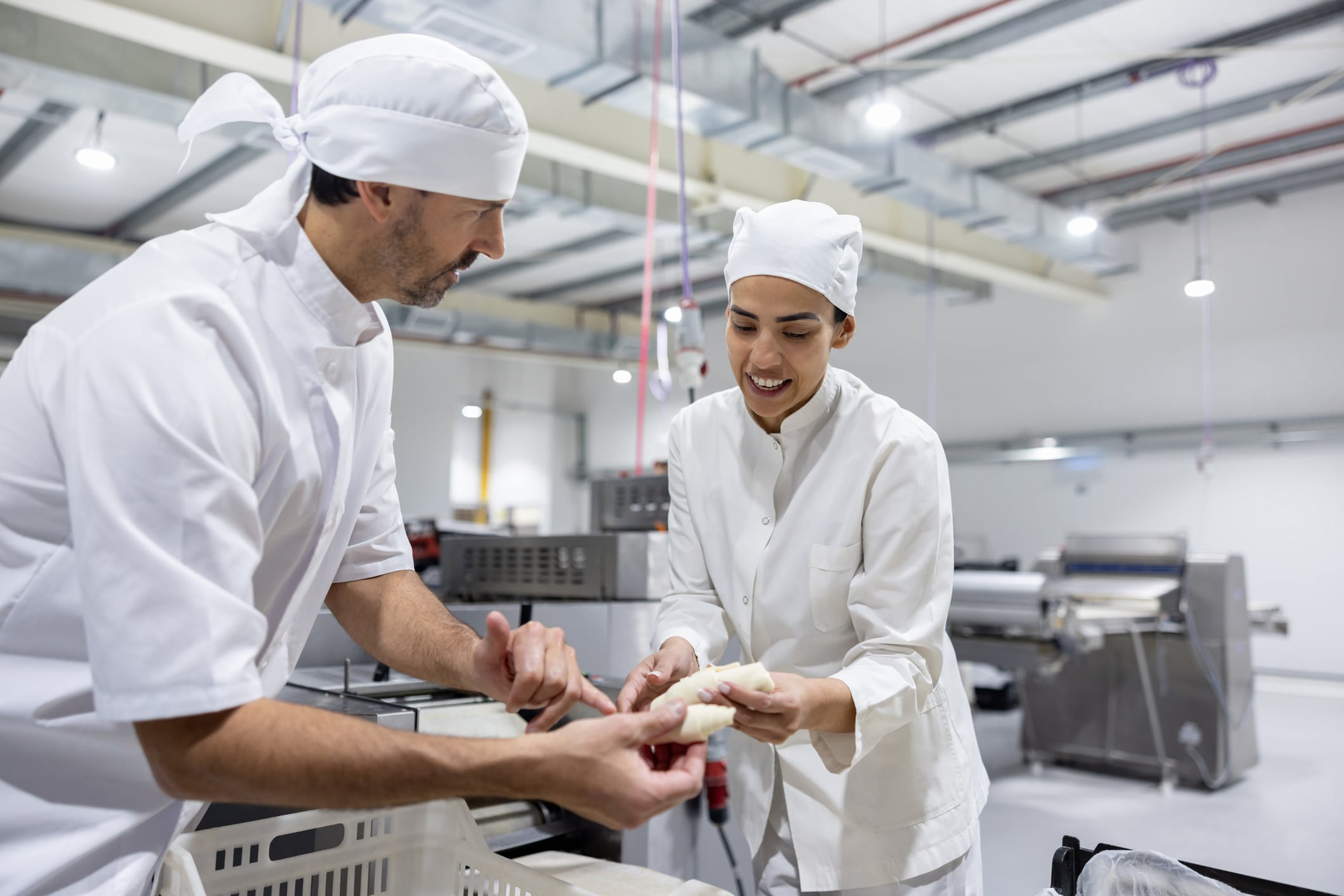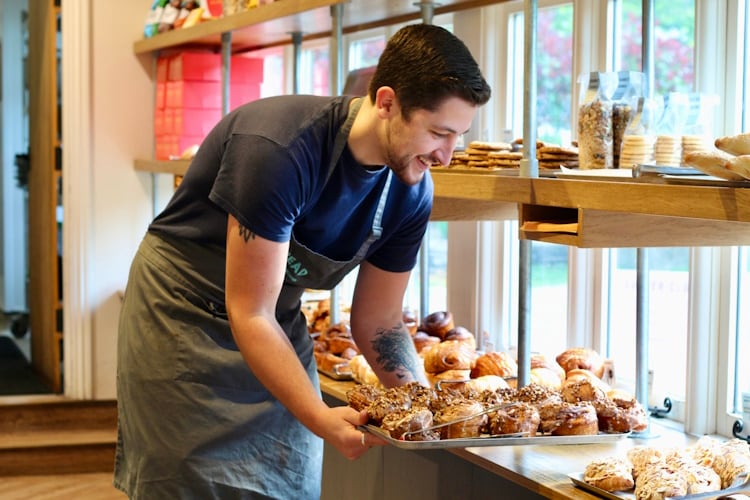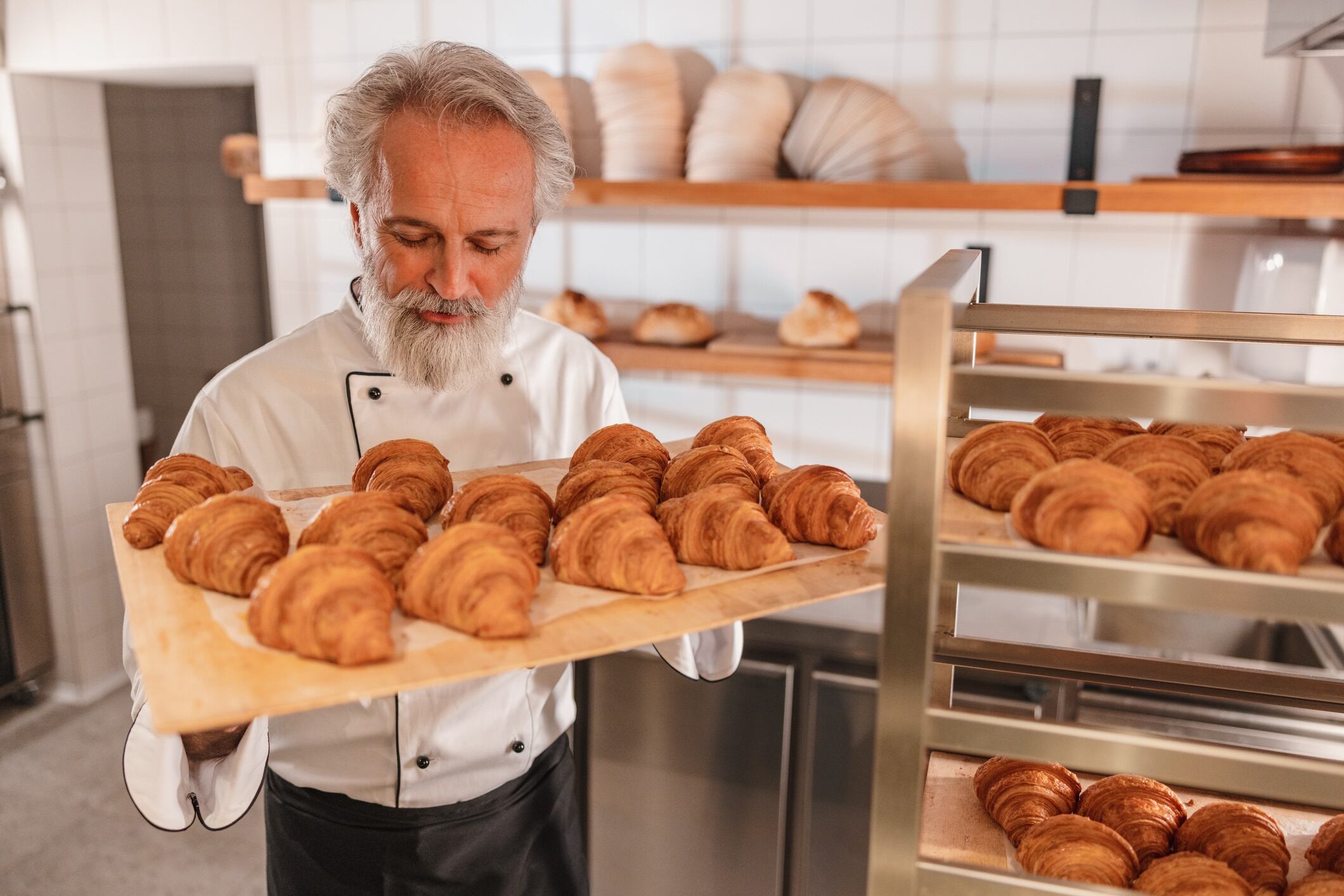Key takeaways:
- The Baking Association of Canada’s new Executive Council, launched in mid-2025, aims to sharpen industry priorities and strengthen advocacy for bakers of all sizes.
- Ongoing US–Canada trade tensions and interprovincial barriers are pushing the BAC to work with Global Affairs Canada to explore new free-trade opportunities.
- Denise Lee says Canada’s $21.5bn bakery sector must compete on innovation – not price – by investing early in technology, sustainability and skilled labor.
When I caught up with Denise Lee, director of Food & Nutrition Policy at the Baking Association of Canada (BAC), during IBIE in Las Vegas, she was brimming with optimism despite the challenges facing the country’s baking industry.
“Our bakers are incredibly resilient,” she says. “We’ve kept growing, even in the middle of trade tensions, regulatory change and labor shortages. But it’s time we stopped just reacting and started building something bigger.”
That ‘something bigger’ is sharper direction. “There are so many issues we could address, but that really dilutes our work,” says Lee. “I felt I couldn’t do everything well. This Council brings together executives with boots-on-the-ground experience to set priorities and strengthen our advocacy.”
For Lee and BAC president Martin Barnett, the goal is clarity. “We don’t need to decide everything ourselves,” she says. “We have a board – and now an executive group that can guide where we go next.”
The timing couldn’t be better. “Our larger companies can absorb some of the shocks,” says Lee. “Our smaller guys can’t. So we’re looking for funding opportunities – growth, technology, AI – to bridge that gap.”
The trade fight that won’t quit

Trade tensions remain the toughest nut to crack. “We’ve heard a bit of everything,” says Lee of the US-Canada tariff battle. “Some members are loyal to their U.S. suppliers, but others have lost business. And now our US colleagues are losing Canadian customers who can’t afford their ingredients anymore.”
The fallout runs deep. “It’s not just a Canada impact – it’s a North American impact,” she stresses. “That’s why we’re pushing for new trade opportunities.”
To that end, the BAC has been in talks with Global Affairs Canada – the federal department that handles the country’s trade, diplomacy and international development – to explore untapped free trade agreements that could help bakers diversify their sourcing and export options. “That’s a great opportunity for Canada,” says Lee. “It may have been explored before, but now it’s being revisited.”
Even inside Canada, the playing field isn’t level. “Interprovincial trade barriers are costly and time-consuming for small businesses. The lack of harmonization between provinces adds to food waste and inefficiency. We need to fix that if we want a truly efficient domestic market.”
Still, Lee insists disruption can drive progress. “If we can turn it around and look for opportunity in this, it forces us to examine our own processes – lean manufacturing, efficiencies, innovation. That’s how you compete in the global market.”
Labor pain and the regulatory crunch

Ask any baker what keeps them awake and the answer is labor. “We hear it all the time – members waiting two years for labor approvals,” says Lee. “Businesses can’t stop because the paperwork’s stuck. It forces them to scale back or take whoever they can get.”
She says the gap isn’t just numbers – it’s skills. “There’s a big need for skilled training – someone who knows the craft. General labor is vital, but the politics around it make it challenging.”
Regulation adds another layer of pressure. “Sustainability is a big one. We’re helping members adjust to the plastics initiative, asking good questions of suppliers and learning what support they need.”
Then comes the labeling overhaul. “Front-of-pack labeling is happening,” says Lee. “The Safe Food for Canadians initiative – similar to FSMA – takes effect January 1, 2026. That’s label turnover, packaging changes, big expense.”
Her advice is to act early. “We want our members to plan now, not react later. That’s how you save money and pain.”
Compete on innovation, not just price

With costs soaring, many small bakeries face a harsh choice: compete on price or pivot on innovation. “There’s a big push for innovation and we definitely encourage it. Efficiency frees up time and funds for creativity. That’s how you stay competitive.”
But for many, price is still king. “Smaller operators are trying to compete on all fronts,” she explains. “But if they can’t make the margins or buy quality ingredients, there’s a trickle effect. They can’t be price-competitive because they need that margin just to sustain the business.”
That’s where the Council can help. “They need that extra support. We’re looking for funding to integrate technology or AI – anything that helps them grow.” And while global expansion remains a stretch goal, “you can’t do that if you can’t scale product.”
A $21.5bn sector ready for its spotlight

For all the challenges, Canada’s baking industry is far from fragile. “The bakery sector in Canada is a $21.5 billion industry. We’ve grown through political and regulatory turmoil. It’s slow, steady growth – but we’ll take it.”
That stability, says Lee, should be Canada’s calling card. “Look at how much we’ve managed to grow despite everything – supply chain, labor, tariffs. That’s incredible resilience.”
What’s missing is recognition. “People need to know there’s a passionate baking community here making world-class products. Our trade commissioners and government partners can help spread that message – that Canada is a reliable, innovative source.”
Crucially, the Council represents everyone, not just multinationals. “They’re not just large organizations. There are small and medium bakers too. Now we’re getting a bigger scope of challenges – but also more opportunities.”
That feedback loop strengthens the BAC’s hand. “It gives us better intel on the market and the day-to-day struggles,” she says. “We can advocate more effectively when we really know what members face.”
Measuring success

So what will prove the Council worked? “If the government starts recognizing the bakery sector as essential, that’ll be a big win,” says Lee. “When we’re asked to contribute – when ministers are surprised by how much we contribute – that’s success.”
She wants to replace complaints with collaboration. “If we can go to policymakers and say, here’s our pain but also here’s a solution, that’s progress. We’d like to be asked for help, just as we’ll ask them for support.”
Early signs are positive. “We’re already seeing more businesses wanting to be part of this work,” she says. “There’s greater collaboration between associations, industry and government.”
Partnership with the American Bakers Association (ABA) shows that cooperation can cross borders. “Working with the ABA shows a positive relationship. It proves the baking industry is collaborative – it’s working together and can transcend any problem.”
BAC’s roadmap is clear: tackle tariffs through diversification; cut interprovincial red tape; prepare early for plastics and labeling laws; attract skilled labor; and boost process efficiency.
And the tone from the Council is optimistic but urgent. “We encourage innovation – that’s how you compete globally. Act early, not react. Keep telling us your pain points so we can bring them into the bigger conversations.”
Canada’s bakers, says Lee, have already proven their grit. “We have passionate makers with really good product,” she says. “Now, with the Council’s help, we can focus that passion – turn it into influence, innovation, and growth.”
The message to the world? Canada’s bakery industry isn’t just resilient – it’s ready.



